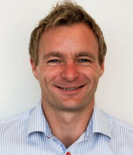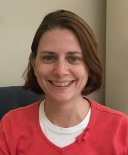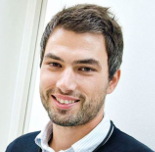
We are proud to announce five renowned plenary speakers:

Claridge is the Director of NMR Spectroscopy for Organic Chemistry & Chemical Biology at Oxford University as well as professor of nuclear magnetic resonance spectroscopy. His research interests revolve around the application of solution-state NMR techniques, which address questions of structure, function and dynamics of "small" molecules in organic chemistry and chemical biology. Tim studies the interaction of small molecules with protein targets where NMR spectroscopy plays a key role, providing information on the behaviour of the small molecule and on structural changes in the protein itself. A variety of NMR techniques are used to probe such interactions, such as saturation transfer difference and WaterLOGSY as well as protein-observe methods with isotopically labelled macromolecules. He is also interested in developing and applying new methods for the characterisation of small molecules by NMR.

Fjell is interested in how the brain develops and changes during the life-span, and the cognitive consequences this development has. Fjell's research is focused on understanding the dynamic relationship between changes in brain structure, brain function, and cognitive abilities. Fjell use several different approaches to understand the relationship between brain and cognition, focusing on MR morphometry and diffusion tensor MRI. fMRI (functional MRI) of the brain is also included. An additional interest in Fjell's research is in how brain structure and function interact with CSF biomarkers in aging and Alzheimer's disease to produce cognitive changes.

Wimmer is the leader of the university's NMR center. His research covers broad areas of NMR spectroscopy, applied to biomolecular or biotechnological questions. A particular focus has been antimicrobial peptides, thought to offer a completely new class of antibiotics: widely abundant in nature, and very difficult for bacteria to acquire resistance against. Wimmer has also been involved in a number of collaboration projects with Aalborg and Aarhus university hospitals to utilize NMR metabolomics in medicine, for example in critical care or COPD patients.

Britton is world known for her educational lectures at scientific meetings where she combines often seemingly disparate fields of NMR and MRI into a unified theme. Using a variety of NMR experiments, including T1 and T2 NMR relaxation measurements, spin echo imaging, pulsed field gradient measurements and velocity imaging, Melanie's group are providing unique insights in molecular processes underpinning systems found in a range of applications from structured materials, manufacturing and energy storage, to medical applications relevant in the diagnosis of cancer and the development of biomarkers.

Emblem is a famous young researcher in Norway mainly involved in MRI in Clinical Cancer Therapy. One of Emblems' goals is to solve one of the largest problems in cancer therapy. It is unknown who will benefit from treatment with a particular drug. Since only about half the patients who receive a typical anti-cancer drug benefit and the others just suffer side effects, knowing whether or not a patient's tumor is responding to a drug can bring us closer to truly personalized medicine. The main goal of Kyrre's research group is to find predictive and prognostic MRI-based biomarkers for better identification of patient-specific treatments and by this define how best to move the field of cancer therapy forward.